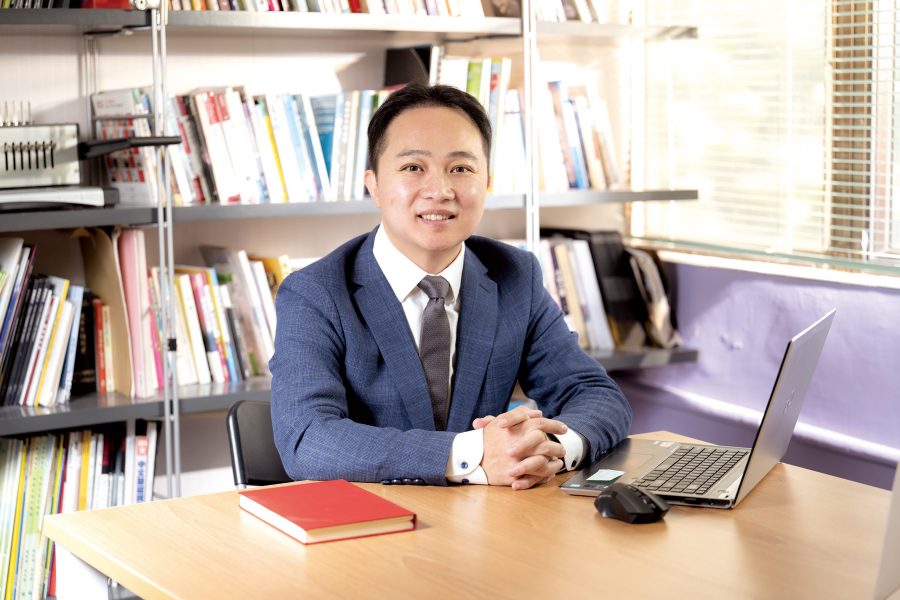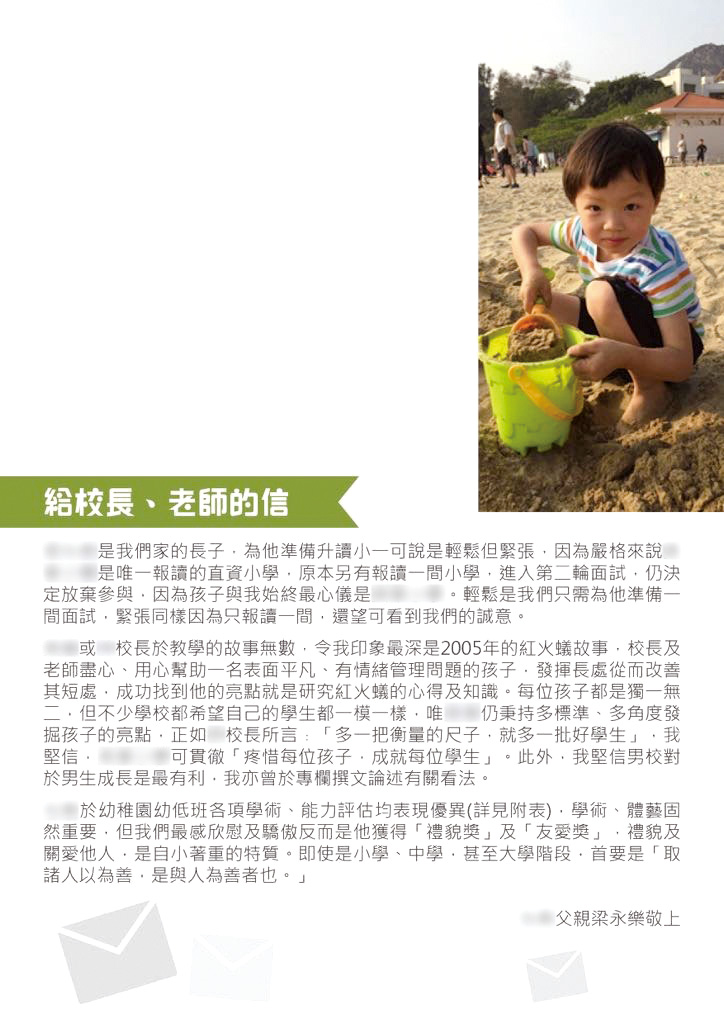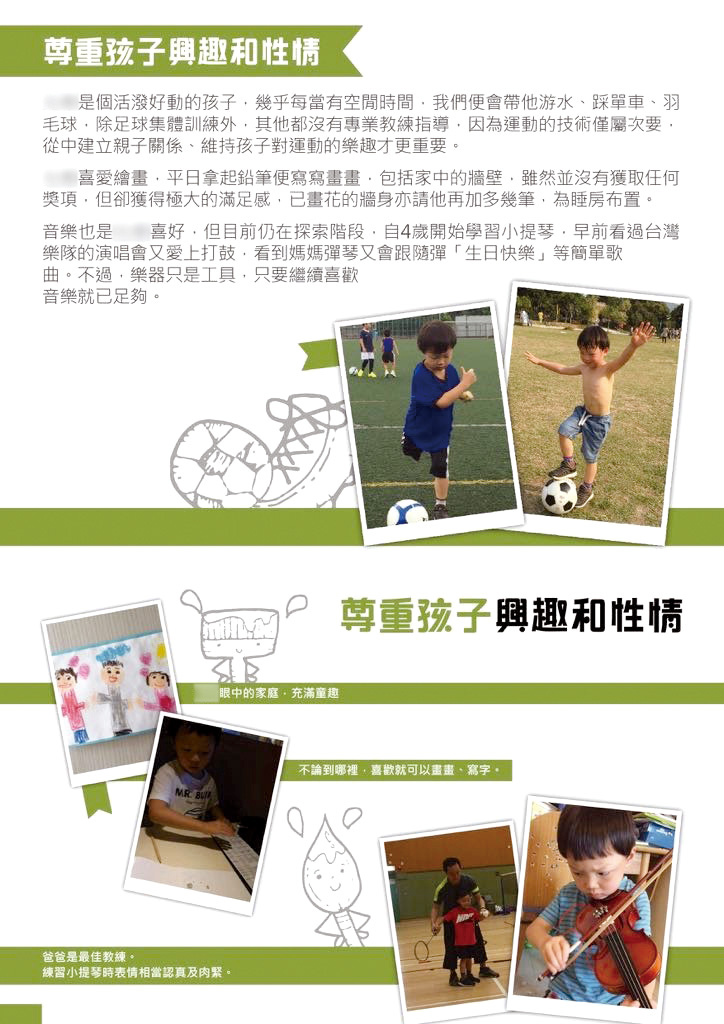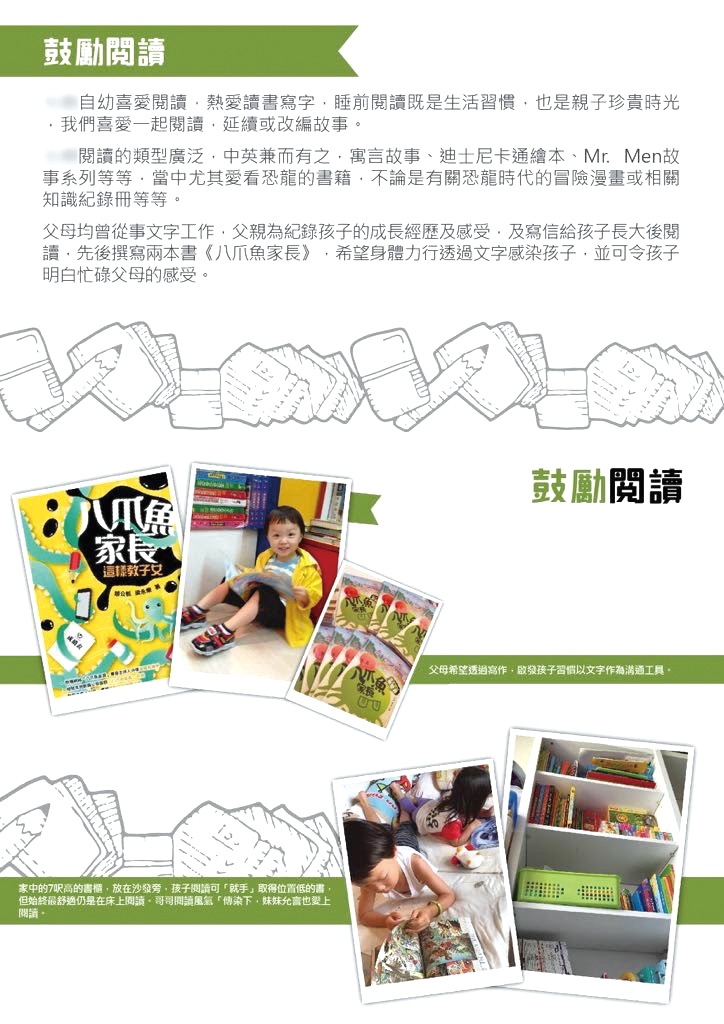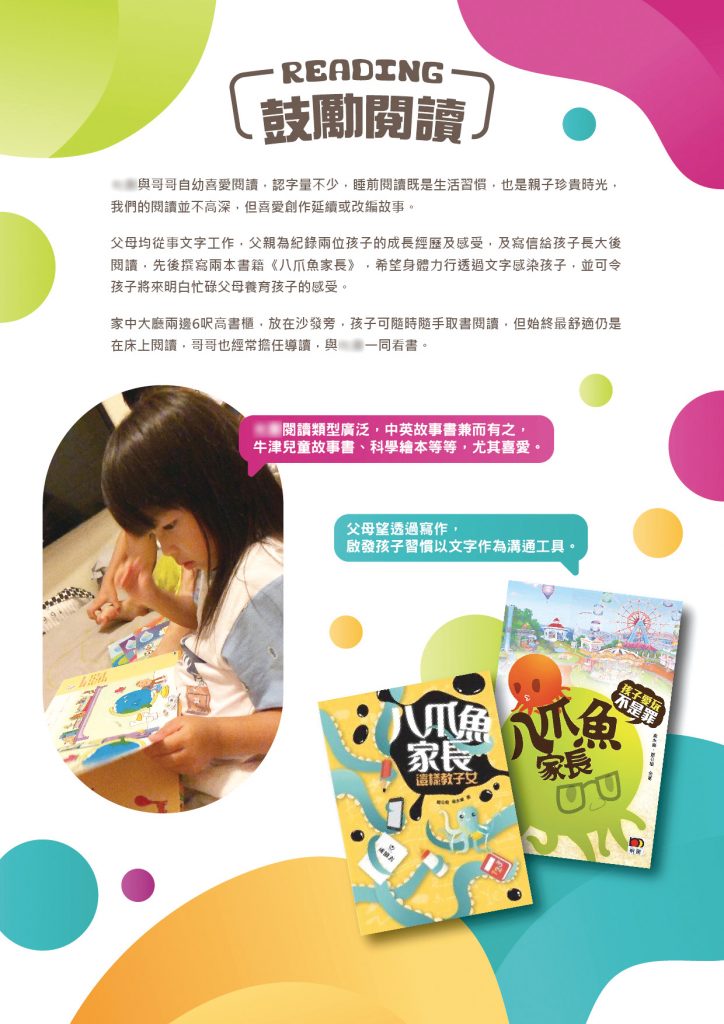Esteemed expert in further studies Leung Wing Lok is also known as “Octopus Dad”, a self-proclaimed moniker reflective of the number of “tentacles” parents seemingly need to effectively shoulder their responsibilities in the household and workplace. On one end, some parents use the excuse of work to shy away from their obligations to their children; on the other end of the spectrum are “helicopter parents” who are overly controlling and demanding. Many years ago, Lok co-published parenting books such as “How Octopus Parents Raise Their Kids” and “Octopus Parents – Child Play Is Not a Sin” to show parents that parenting can be fun.
Lok’s extensive knowledge and experience in further studies and education stem from his former job as a journalist in Ming Pao Daily’s education section 20 years ago. “I was given the chance to learn about the Hong Kong education system from kindergarten all the way to university. I either read or was involved in the production of all books about further studies by Ming Pao. At the same time, I got to visit a lot of schools, talk to principals, and obtain first-hand information from students of different schools in addition to my own observation and analysis. Eventually, I was able to work out a pretty good blueprint on how to match an appropriate school to a student, plus a list of don’ts for both parents and students. My role as the ‘expert in further studies’ was officiated when I was invited to write columns and host seminars on the topic.”
Parents who swim against the tides must be prepared to withstand the challenging norm
Although Lok’s son and daughter study at a local elite school, he never pressures his children to get good grades. “I simply do not believe that pressurizing our children will do any good. Take our young adults as an example: most of them grew up under immense pressure. They listened to Mozart as infants, and spent most of their childhood and teenage going through all kinds of training. Do you find them smarter, happier or achieving more? The answer is no. While allowing our children to grow up at their own pace and direction, parents who swim against the tides must be prepared to withstand the challenging norm. Choosing the right school for your kid is the first crucial decision to make. By enrolling your kid in an academically competitive school, you are more or less sending your child a message that bends towards the idea of ‘life is all about getting good grades, being admitted to a university, and securing a job’. Children in these schools regard academic excellence as their only life goal, and do not expect to learn anything else. Obviously, the parents expect the same. Even though moral education is included in their curricula, students’ performances in the moral education classes are still graded. Now is the time for change, and I believe parents are responsible for advocating such change in the education system.”
Pressing for academic excellence, or not
Interestingly, Lok describes his advice for parents as cliché: there is no such thing as the perfect school, just a perfect fit for your children. “First, learn about the schools’ reputation and think carefully if they are right for your child. Let’s categorize the schools into those that press for academic excellence only, and those that are interested in exploring their students’ passions and potentials, and then decide on which stream you prefer your child to join. Most traditional schools tend to pressure students towards good grades. Failure to adapt to such harsh learning environments may result in mental health issues. If parents discover that their children are struggling at school or have lost interest in learning, they may consider choosing a ’happy school’. However, before making such a decision, parents must be honest with themselves whether they would accept their children having mediocre grades.”
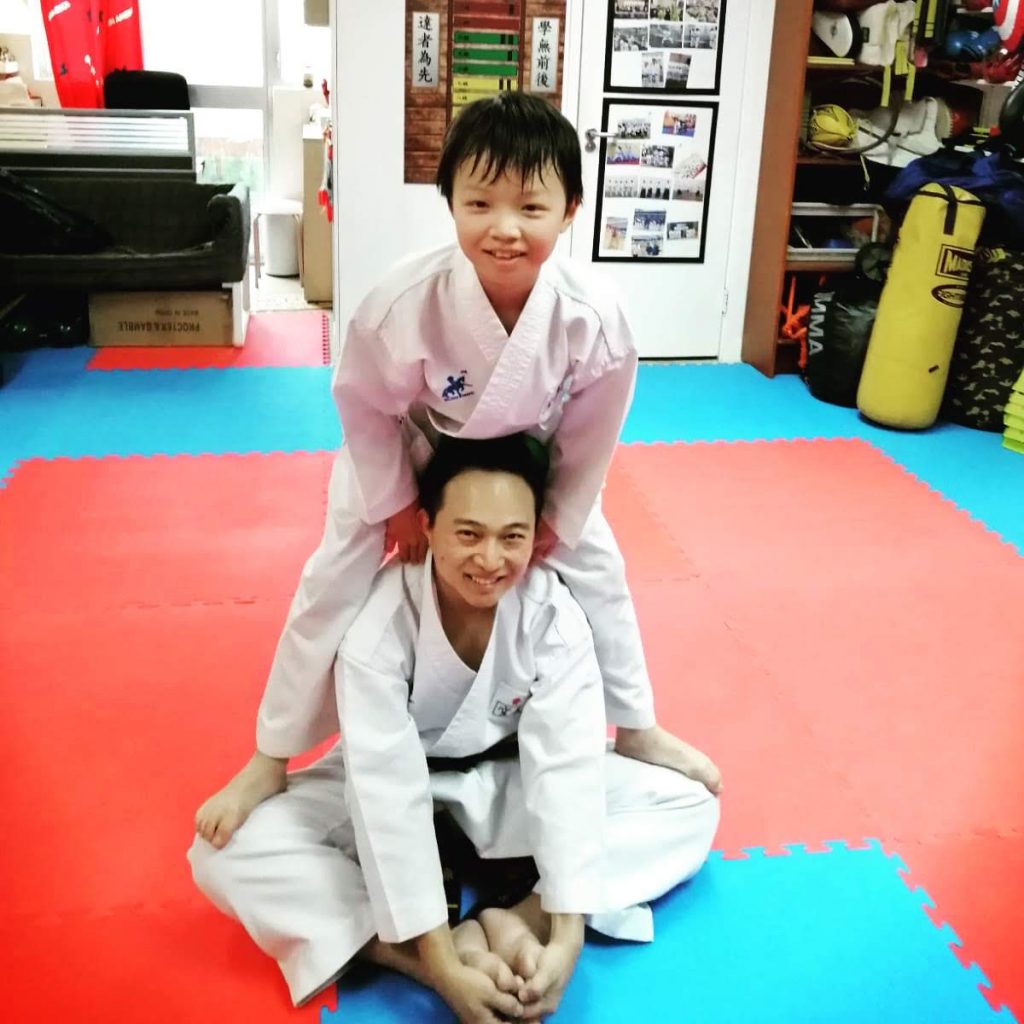
“Another factor is how you feel about the school. In other words, do you like it? Your preference for the school can rely on a number of factors: the principal, the environment, alumni’s bond and more. Every school in Hong Kong, even those with lower grade averages, has its unique strengths and features; the question is whether we can notice and identify them. A school that makes its students enjoy attending is already qualified to be regarded as full of advantages.”
Misconceptions about banding
“A lot of parents prefer elite schools, yet all aided and DSS schools, even the less famous ones or schools that are considered rejects, have Band One students. Let me explain how banding works: imagine a queue of all the Primary Six students in Hong Kong, the top one-third are labelled as Band One, while the second and third are Band Two and Three respectively. All primary school graduates must take the Pre-Secondary One Hong Kong Attainment Test. Every school has a different banding ratio, which is reflected in their graduates’ test scores. Some elite schools have a very high ratio of Band One students, while some regular and obscure schools can still maintain a 1:3 ratio of Band One students on average. Regardless of the school’s reputation or status, students who work hard on their language skills and attain a certain level of language proficiency are very likely to enroll into a Band One secondary school. Besides, elite primary schools also have a certain ratio of Band Three students. Even though these students may have a chance to be admitted by an affiliated secondary school, they still face the risk of being kicked out at a later stage if they did not receive the help they needed during their primary school years. Shall they be kicked out, regaining their self-confidence will be a difficult feat.”
The principal – soul of a school
While some parents may worry about the teaching quality in less elite schools, Lok points out that the principal alone can make all the difference. “Teaching quality depends on the principal’s leadership and management skills no matter what school you are in. Principals can change their colleagues’ attitudes, the school’s teaching direction and school ethos in merely one to two years. Most of the teachers I know are passionate about education – the question is how to ignite their passion. I have seen teachers that are not helpful and go to work every day waiting to clock out. They are then weeded out by a competent principal who took on the immense pressure of replacing staff. Alternatively, some principals may choose to ignite teachers’ passion by hiring new teachers or staff from their previous team. The principal is a key consideration when selecting the right school for your children. I suggest parents to attend the school’s briefing session and see if they agree with the principal’s philosophy – if you do, there is a great chance that you will like the school too. Parents are intelligent beings. Some schools like to brag about their awards, but this may cause backlash as not every student receives them. Parents will then think: the students who did not receive awards are never mentioned. Does this mean they are neglected by the school? This is reflective of a principal who is driven by fame, and parents will immediately realize whether the awards mentioned benefit the school, the students or are meant for bragging only.” Lok reminds parents that they should focus on what they want, instead of what the principal says.
Observe how students act after school when choosing the right secondary school
As for tips on choosing the right secondary school, Lok says, “People in Hong Kong have a penchant for English learning, which is why many parents want their children to enroll in an EMI school. However, not all Form One students can get used to learning in English. Those that fail to understand the teacher will lose interest in learning. Some schools divide their students into Chinese and English classes. Although children who cannot adapt to English learning can switch to a different class, this may crush them. Even if they were able to obtain excellent grades in Chinese and Mathematics in primary school, and hence were given the pass to go to a Band One EMI school, parents should still consider carefully whether to choose an EMI school over a CMI school as children who lack English skills may struggle in the former.”
“When it comes to choosing the right secondary school, the school ethos must be considered. Apart from collecting hearsay information about the school, I suggest parents to take a field trip to their schools in consideration and observe how the students act before and after school. You can also interview nearby shops: do the students steal or disrespect others? Observe how the students treat the waiters in restaurants in the neighbourhood. Do teachers take care of students when they leave school? I saw a teacher stopping a jaywalking student to remind him to obey traffic rules and practise crossing the road 10 times before letting him leave. Though people nowadays value human rights and shun punishment, I appreciate this teacher’s disciplining style. The above are all important and great ways
to figure out a school’s ethos. Are school ethos and grades interrelated? The answer is no. Some students in elite schools hate their schools or have bad manners; while Band Three students can be well-behaved. A less favourable
starting point does not guarantee poor results. Band Three students who are less privileged in academics can flourish in other areas, thanks to the many thoughtful schools that go an extra mile to explore and nurture students’ passions and strengths, while following the regular curriculum and relaying to them basic skills like languages. These schools discover students’ interests (such as brewing coffee, STEM, programming, technology or arts) and teach them both the skills they require and the knowledge laid out in the academic curriculum. I can imagine if students watch NBA because of their interest in basketball, they will pick up English in a quicker manner!”
Parents nowadays struggle with preparing children’s portfolios when applying for primary schools; they invest countless hours and money into crafting the perfect resume for their little ones. Having been in the industry for many years, “Octopus Dad” has consulted school principals in hopes to shed light on what is considered a good resume.
- Be concise: keep the entire application within four pages.
- An eye-catching cover page is crucial as principals and teachers, who are in a haste of going through numerous portfolios, are more likely to thoroughly read the content of a portfolio that can attract their attention. The cover page usually consists of the child’s photo, which should be a regular passport photo with a blue background or a candid photo that reflects the child’s personality. Parents should take their time to choose an appropriate photo.
- The content of the portfolio should reflect the child’s personality, the reason for opting for the school and the parents’ education philosophy.
- The text should be used in moderation and in an easily comprehendible font size. Use photo captions to complement images, and assign headings generously to express key messages for principals’ and teachers’ easy
reading. - Refrain from repeating the child’s awards and accomplishments. The school may not value this section as much as parents would like to believe, as every applicant has similar achievements considering they are still very young.
~ Helena Hui

